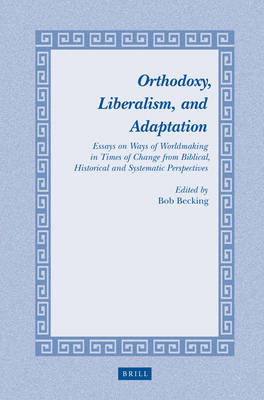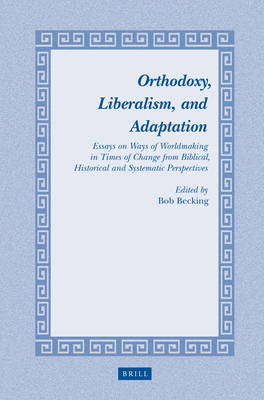
- Afhalen na 1 uur in een winkel met voorraad
- Gratis thuislevering in België vanaf € 30
- Ruim aanbod met 7 miljoen producten
- Afhalen na 1 uur in een winkel met voorraad
- Gratis thuislevering in België vanaf € 30
- Ruim aanbod met 7 miljoen producten
Zoeken
Orthodoxy, Liberalism, and Adaptation
Essays on Ways of Worldmaking in Times of Change from Biblical, Historical and Systematic Perspectives
€ 228,95
+ 457 punten
Omschrijving
How does religion cope with changing situations? Are orthodoxy and liberalism really competing strategies? The essays in this volume argue three views. (1)Orthodoxy is not to be seen as the real and original form of a given religion, but as an idealized original form that should be construed as a construction in reaction to changes in time. (2) Over the ages, liberalism - despite its laudable strive for adaptation - has been less successful than generally assumed. This lesson from history can be quite important in view of the adaptation processes for Muslims in Western Europe. (3) Of great importance for the survival of religion seems to be a clear definition of the boundaries of religiously informed practices and ethics. Their recognisability and authenticity shall - when combined with a due lack of obtrusion - be of great influence for the ongoing acceptance of religion(s) in the public domain.
Specificaties
Betrokkenen
- Uitgeverij:
Inhoud
- Aantal bladzijden:
- 312
- Taal:
- Engels
- Reeks:
- Reeksnummer:
- nr. 15
Eigenschappen
- Productcode (EAN):
- 9789004208698
- Verschijningsdatum:
- 25/08/2011
- Uitvoering:
- Hardcover
- Formaat:
- Genaaid
- Afmetingen:
- 160 mm x 240 mm
- Gewicht:
- 659 g

Alleen bij Standaard Boekhandel
+ 457 punten op je klantenkaart van Standaard Boekhandel
Beoordelingen
We publiceren alleen reviews die voldoen aan de voorwaarden voor reviews. Bekijk onze voorwaarden voor reviews.







